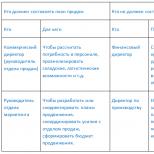Stock market concept for beginners
Good afternoon dear friends! The author of the blog Ruslan Miftakhov is in touch as usual. In today's article, I will talk about the stock market for beginners. Beginners can sometimes underestimate how seriously everything is arranged here.
Therefore, I want to talk about the principles of working in the stock market, how to start trading correctly so as not to be at a loss. This topic will be useful not only for beginners, but also for people who already have certain knowledge in this area.
The first thing to start with is to understand the concept and essence of the stock market, as well as its basis.
And so, the stock market, which is also called the securities market, is an important part of the entire financial market, since all securities are traded here.
Any active company that seeks to achieve further success needs to attract additional financial resources (thanks to a bank loan, securities issue).
All options for obtaining income from securities are associated precisely with the stock market - a place for attracting and redistributing money between companies, economic spheres and participants in the securities market, which form its basis.
Participants in such a market are classified:
- intermarket participants - they are engaged in servicing the market (collecting the necessary information, conducting consultations, making ratings);
- intramarket participants - are engaged in activities with securities, and are divided into professionals and non-professionals (issuers of securities, investors).
Professionals are licensed to carry out their activities in the securities market, these include traders who trade at a professional level and organizations that create infrastructure (brokers, dealers, registrars, depositories, exchanges, clearing companies). Read what clearing is.
What is traded here, what indices are used?
The main financial instruments are:
- shares - ordinary and preferred (read the difference between them in);
- bonds (we also considered their essence in the articles "", "");
- futures - futures contracts that require the mandatory completion of the transaction at previously agreed prices (gas, oil, currencies) within a certain period; (read more about futures)
- options are fixed-term contracts that give the right to buy or sell securities within a specific time frame with a profit. Read on to find out the difference between futures and options.
To assess the global processes that take place in the securities markets, stock indices are used, reflecting the movement of asset prices that are included in the calculation of a certain index.
![]()
The world's leading stock indices include: S & P500 (USA), FTSE-100 (England), DAX-30 (Germany), CAC-40 (France), Nikkey-225 (Japan), RTS Index and MICEX (Russia) and others.
Options for making money on the stock exchange
Today the number of people employed in this area reaches several million. And this is not surprising, since the stock market provides potential earning opportunities, and there are several of them, and each person chooses the most suitable one for him.
Let's consider each of the existing options:
1. Trading is the most popular way of making money, which is not limited by anything.
The main goal of a trader is to sell an asset for more than the price for which he bought it. Deals are of ultra-short-term, short-term and long-term.
Want the most efficient trading platform? Then click on the button below, register and make transactions.

The main point is to determine where the price will go up or down and choose the right direction.
Minimum deposit 10 $, minimum investment from 1 $, withdrawal of funds within 24 hours.
In order to determine when to make a deal and the dynamics of price changes for an existing asset, traders use various analyzes of the stock market (fundamental, technical), indicators, risk opportunities (leverage, short games).
It is important to understand that some of the completed trades will still be unprofitable, and in order to make a profit, you need to ensure that the result of profitable trades exceeds the resulting losses.

The better a trader develops his trading system (the correct choice of markets, financial instruments, trading times, testing of the created system), the better result he will have. Also, you should always be ready for constant analysis and monitoring of the market, changing the chosen methods.
2. Earnings with the help of trust management of funds.
People who do not have a sufficient amount of time, as well as the necessary knowledge, can transfer their money, investing it in collective investment, to special managers who are professionals in this area (remember, we examined the topic in detail with you?), And lead bidding on its own behalf.
This means that the investor, having selected a successful manager according to special ratings, transfers his funds to his separate account, and at the end of a certain period receives a profit (or loss) from the result of his activities, in proportion to the amount of the invested funds, minus the remuneration due to the manager.
3. Self-directed portfolio investment, which involves choosing a portfolio of promising stocks, and adding risk-free bonds to it in ideal proportions, allowing you to get the best result. At the same time, the investor knows in advance the percentage of profitability of his selected assets.
Instructions for beginners to trade on the stock exchange
Starting trading involves going through the following stages:
Choosing a reliable broker through which the trader will communicate with the exchange. When choosing, you should pay attention to the trading conditions offered by him, what training materials he can offer, how transactions are carried out here and how quickly you can withdraw funds from your account.
- FinMax- the best broker for beginners;
- Binomo- the best broker according to the readers' opinion;
Installing a special program on a computer (which is provided by the selected broker) - a terminal that will allow you to go online to the exchange and carry out transactions.
Choosing a trading strategy and training on a trial (demo) account, which will allow you to test your strength and the chosen strategy on virtual, not real money.
Opening a real account (only after you manage to make a profit on a demo account, moreover, according to the advice of experienced traders - double!).
Realization of real trade.

Tips for successful and profitable trading:
- correctly develop a trading system (what it consists of we wrote above);
- do not get carried away, and do not be greedy, think over deals carefully, stock up on patience and discipline;
- manage your losses;
- do not rush to immediately get big profits;
- do not try to recoup an already closed deal;
- do not use all types of analyzes and graphs at once;
- do not neglect education, and constantly continue learning;
- do not deceive yourself and really assess your capabilities.
I hope that this article was useful to you, expanded your knowledge about the securities market and exchange trading. I want to wish you good luck!
Best regards, Ruslan Miftakhov





